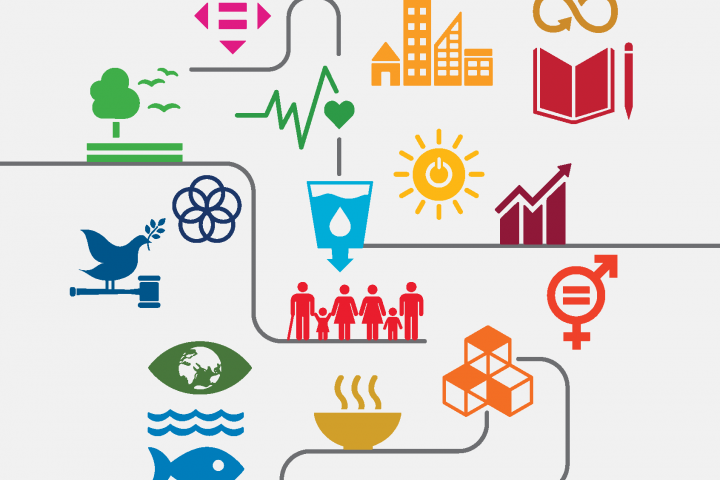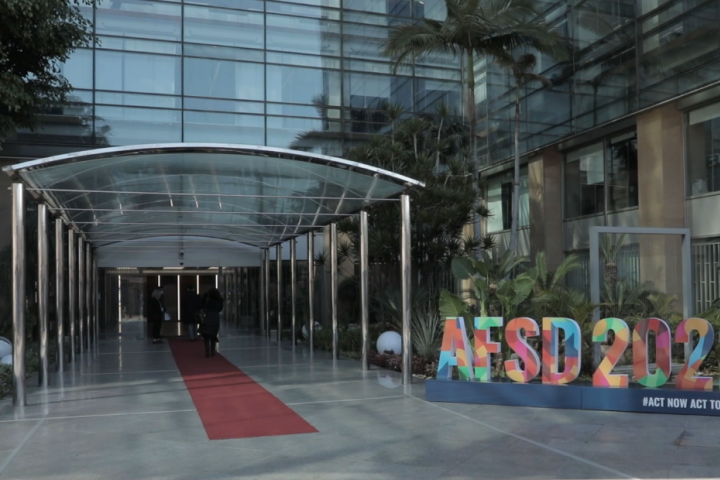Beirut, 20 April 2018 (Communication and Information Unit)--- On Tuesday, the Economic and Social Commission for Western Asia (ESCWA), the United Nations’ regional arm that supports Arab countries in reaching crucial development goals, is welcoming a record number of participants at its headquarters in Beirut for its annual Arab Forum for Sustainable Development (AFSD).
Under the patronage of Lebanon’s President of the Council of Ministers H.E. Mr. Saad Hariri, over 250 representatives from government, civil society, the private sector, international and regional organizations, and youth will come together in a space dedicated to fostering a culture of knowledge exchange and a spirit of collaboration and dialogue.
“As Arab countries move forward with the 2030 Agenda for Sustainable Development, it is time for us to acknowledge that we cannot go on as we have before,” said the Executive Secretary of ESCWA, Mohamed Ali Alhakim, warning that severe water shortages, effects of climate change and desertification, depleting oil reserves, and barriers to renewable energy are all a call for the region to think differently.
“We need a new approach to the way we manage and use our natural resources,” he continued. “We need to acknowledge that what is good for the planet is good for our people. We need sustainable development for the common good.”
While there are many pressing issues to tackle especially given recent diplomatic escalations that fuel economic and social instability, AFSD 2018 opted to bring the links between natural resources and the common good as central issues to intergenerational justice to the forefront of the deliberations. The focus is also aligned with global discussions that will take place in July at the High-level Political Forum in New York.
This year’s theme: Natural Resources, Future Generations, and the Common Good is challenging the Forum’s main constituents, those in charge of horizontal development planning in Arab countries, to use the term “integrated sustainable development” not as a buzz word but to impart to it a sense of urgency and more importantly ethics.
“What appears as the right thing to do now is not necessarily right for the future,” Mr. Alhakim stressed. “Our way of thinking on how to use our environment and available resources has been adulterated, leading to policies that barely serve our current needs much less those of our children and grandchildren. Current practices are environmentally, and in many ways economically untenable and they are, fundamentally, unjust to those less advantaged today as well as to future generations.”
The three-day Forum (24-26 April) will kick-off with an opening session to set the scene regarding 2030 Agenda emerging trends and potential for transformation in the Arab region. The event will feature plenary sessions and nine special sessions which include: Sharing Lessons Learned on Voluntary National Reviews, Arab Civil Society Platform; Water and Sustainable Development Goals (SDGs): an Arab perspective; Mainstreaming Gender’s Equality and Women’s Empowerment; Youth and the transformation towards sustainable Arab societies; Environment and Natural Resources; “Leaving No One Behind”; and Sustainable Energy.
Agenda
For more information:
Nabil Abu-Dargham, Head, ESCWA Communication and Information Unit
+961-70-993-144; email: dargham@un.org
Ms Rania Harb +961-70-008-879; email: harb1@un.org
Ms Myrna Mahfouz: +961-70-872-372; email: mahfouz@un.org
Mr Haidar Fahs: +961-70-079-021; email: haydar.fahs@un.org



